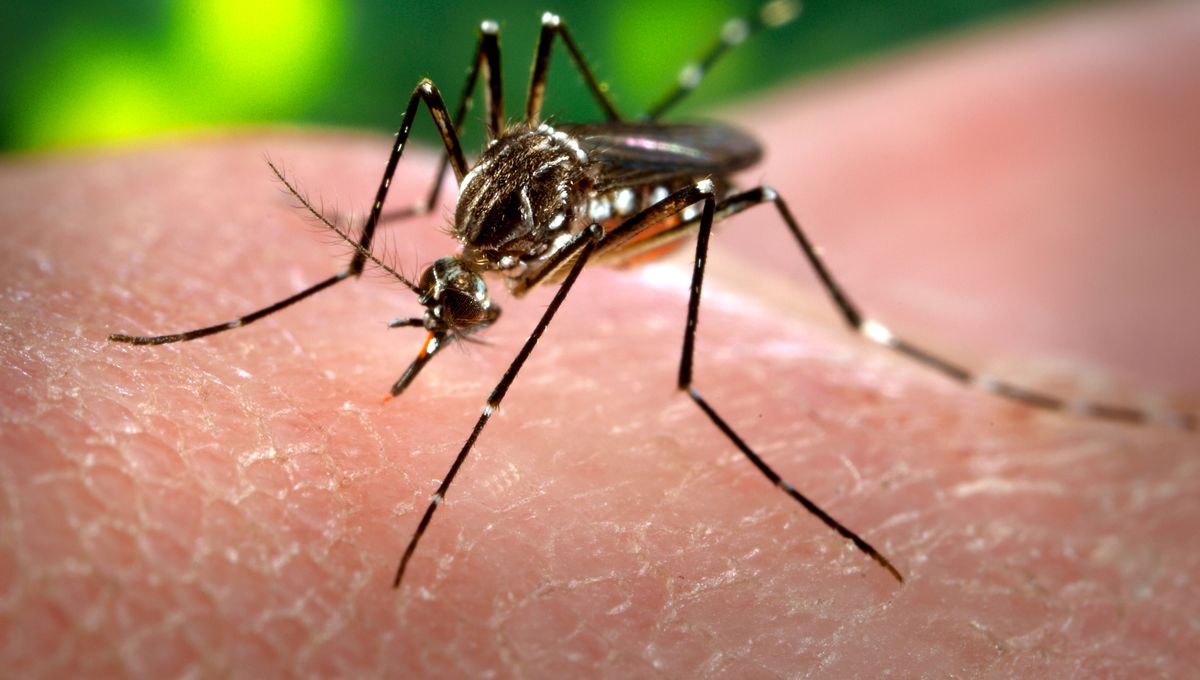
It’s been a record year for dengue infections, and amidst the surge in cases, researchers have been trying to pinpoint the causes. Now, a new study suggests that climate change is responsible for 19 percent of the current global dengue burden – and could soar as high as 60 percent if nothing is done to combat global warming.
Dengue is a viral disease that’s spread by mosquito bites. While most people who become sick with it recover after a week or so, about one in 20 people will develop severe symptoms, such as shock and internal bleeding, which can be life-threatening. There also aren’t any specific treatments for the disease.
With that in mind, it’s not good news that 2024 has seen a surge in the global number of dengue cases, with the Americas in particular recording almost 12 million cases reported so far this year – there were 4.6 million in the entirety of 2023.
The new research, which was presented recently at the Annual Meeting of the American Society of Tropical Medicine and Hygiene and is yet to be peer-reviewed, provides evidence that one of the significant drivers of the current surge in cases is climate change and the rising temperatures associated with it.
“We looked at data on dengue incidence and climate variation across 21 countries in Asia and the Americas and found that there is a clear and direct relationship between rising temperatures and rising infections,” said Dr Erin Mordecai, an infectious disease ecologist and the study’s senior author, in a statement.
There are other factors that can contribute to dengue outbreaks, such as other climate-related phenomena like rainfall, the types of viruses that are circulating, and socio-economic factors like the economy and population density.
Accounting for such factors, the team still found that there was a relationship with higher temperatures, noting that other research has found that dengue-carrying mosquitoes pump out more of the virus as temperatures reach a range between 20°C and 29°C (68°F and 84°F).
The study authors also looked at how the situation might change in the future with or without efforts to combat global warming. In doing so, they found that in some places now entering a temperature “sweet spot”, like Mexico and Brazil, the number of infections could soar by as much as 150 to 200 percent over the next few decades without intervention.
Globally, the increase could be as much as 60 percent, whittled down to 40 percent in the most optimistic climate modeling scenario, where carbon emissions are cut significantly.
As high as those predictions might seem, the researchers still think that they are likely an underestimate; they couldn’t make predictions for countries with a lack of data but where dengue is still endemic, such as in parts of sub-Saharan Africa and South Asia.
It’s also difficult to make predictions where dengue hasn’t really been a problem before, like the continental US. The island territory of Puerto Rico has seen the most cases, but outbreaks have also been seen in Florida and California.
“But as more and more of the U.S. moves into that optimal temperature range for dengue, the number of locally acquired infections will likely rise, though it’s too early to say how that will affect the global burden,” said Mordecai.
The findings were presented on November 16 at the Annual Meeting of the American Society of Tropical Medicine and Hygiene.
Source Link: Climate Change Behind 19 Percent Of Global Dengue Burden – And It Could Get Higher